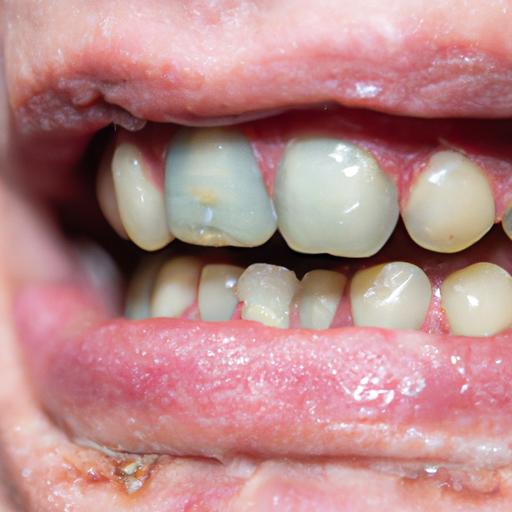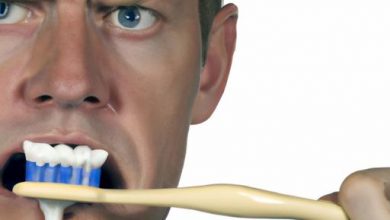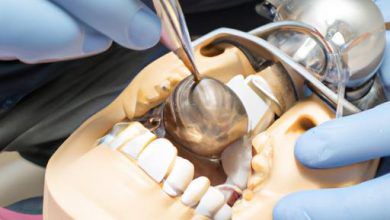What are Dental Problems?
Dental problems are issues that affect the health and functionality of the teeth, gums, and mouth. These problems can range from minor issues such as bad breath or tooth sensitivity to more severe conditions like gum disease or tooth decay.
Proper dental care is essential to prevent and treat dental problems. Neglecting oral health can lead to severe dental problems that can cause pain, discomfort, and even tooth loss. Understanding the common dental problems, their causes, and prevention methods can help maintain good oral health.
Common Dental Problems

Tooth Decay
Tooth decay, also known as cavities, is one of the most prevalent dental problems. It occurs when bacteria in the mouth produce acid that erodes the tooth’s enamel. The acid slowly eats away at the tooth, forming a cavity. Tooth decay can cause pain and sensitivity, and if left untreated, it can lead to tooth loss.
Prevention methods for tooth decay include brushing teeth twice a day, flossing daily, and avoiding sugary drinks and snacks. Regular dental check-ups can also help detect and treat cavities early on.
Gum Disease
Gum disease, also known as periodontitis, is a bacterial infection that affects the gums and bone supporting the teeth. It is caused by plaque buildup on the teeth that irritates the gums, causing inflammation and bleeding. If left untreated, gum disease can lead to tooth loss.
Prevention methods for gum disease include brushing teeth twice a day, flossing daily, and avoiding tobacco use. Regular dental check-ups can also help detect and treat gum disease early on. Treatment for gum disease may include scaling and root planing, antibiotics, or surgery in severe cases.
Dental problems can have various causes, including poor oral hygiene, unhealthy diet, genetics, and age. Understanding the underlying causes of dental problems can help prevent and treat them effectively.
Poor Oral Hygiene
Poor oral hygiene is a leading cause of dental problems. Failure to brush teeth twice a day, floss daily, and visit the dentist regularly can lead to plaque buildup on teeth. Plaque is a sticky film of bacteria that can cause tooth decay and gum disease.
Prevention methods for poor oral hygiene include brushing teeth twice a day, flossing daily, and visiting the dentist regularly. It’s also essential to use proper brushing techniques and replace toothbrushes every three to four months.
Unhealthy Diet
An unhealthy diet can also contribute to dental problems. Consuming sugary foods and drinks can cause tooth decay by providing a food source for bacteria in the mouth. A diet lacking essential nutrients such as calcium and vitamin D can also weaken teeth and gums, making them more susceptible to dental problems.
Prevention methods for an unhealthy diet include limiting sugary foods and drinks, eating a balanced diet rich in essential nutrients, and drinking plenty of water. Chewing sugar-free gum after meals can also help increase saliva production, which helps neutralize acid in the mouth.
Stay tuned for the next two sections!
Causes of Dental Problems (continued)
Genetics
Genetics can also play a role in dental problems. Some people may be more susceptible to tooth decay or gum disease due to genetic factors. For example, some people may have weaker enamel or a weaker immune system that makes them more prone to dental problems.
While genetic factors cannot be changed, proper dental care can help prevent and treat dental problems effectively. Regular dental check-ups can help detect and treat dental problems early on, preventing them from worsening.
Age
As people age, they become more susceptible to dental problems. The wear and tear on teeth over time can cause enamel to wear down, making teeth more vulnerable to decay and damage. Additionally, older adults may be more prone to gum disease and tooth loss.
Prevention methods for dental problems in older adults include practicing good oral hygiene, eating a healthy diet, and visiting the dentist regularly. Older adults may also need more frequent dental check-ups to detect and treat dental problems early on.
Prevention of Dental Problems
Preventing dental problems is crucial for maintaining good oral health. While some dental problems may be unavoidable, proper dental care can help prevent many issues.
Brushing and Flossing
Brushing teeth twice a day and flossing daily can help remove plaque and prevent tooth decay and gum disease. It’s essential to use proper brushing techniques and replace toothbrushes every three to four months.
Regular Dental Check-Ups
Regular dental check-ups can help detect and treat dental problems early on. It’s recommended to visit the dentist every six months for regular check-ups and cleanings.
Healthy Diet
Eating a balanced diet rich in essential nutrients such as calcium and vitamin D can help strengthen teeth and gums. Limiting sugary foods and drinks can also help prevent tooth decay.
Avoiding Tobacco and Alcohol
Tobacco use and excessive alcohol consumption can increase the risk of dental problems such as gum disease and oral cancer. Avoiding tobacco use and limiting alcohol consumption can help maintain good oral health.
By practicing proper dental care and prevention methods, dental problems can be prevented or detected early on, preventing them from worsening and causing more severe issues. At Zahnweiss Info, we’re dedicated to helping you maintain good oral health and providing the latest updates on dental health news, treatments, and therapies.
Treatment for Dental Problems
Treatment for dental problems can vary depending on the severity of the condition. Early detection and treatment can help prevent minor dental issues from turning into more severe problems that require more invasive treatment.
Fillings and Crowns
Fillings and crowns are commonly used to treat tooth decay. Fillings are used when the decay is minor and involves only a small area of the tooth. Crowns, on the other hand, are used when the decay is more extensive and has weakened the tooth’s structure. Crowns are also used to cover teeth that are discolored or misshapen.
Root Canal
A root canal is a dental procedure used to treat a severely decayed or infected tooth. The dentist removes the infected pulp from the tooth and replaces it with a filling. Root canals are typically used to save a tooth from extraction.
Scaling and Root Planing
Scaling and root planing are procedures used to treat gum disease. Scaling involves removing plaque and tartar from the teeth and gums, while root planing involves smoothing the roots of the teeth to prevent bacteria from accumulating.
Extraction
Extraction is the removal of a tooth from the jawbone. It is typically used as a last resort when a tooth is severely decayed or infected and cannot be saved with other treatments.
Conclusion
Maintaining good dental health is essential to prevent and treat dental problems. Neglecting oral health can lead to severe dental problems that can cause pain, discomfort, and even tooth loss. It’s essential to brush teeth twice a day, floss daily, and visit the dentist regularly.
At Zahnweiss Info, we are dedicated to helping you maintain good oral health. We provide the latest updates on dental health news, treatments, and therapies, inspiring patient stories, and expert advice. Remember, taking care of your teeth is an investment in your overall health and well-being. So, make sure to prioritize your dental health and schedule regular dental check-ups to maintain a healthy and beautiful smile.




